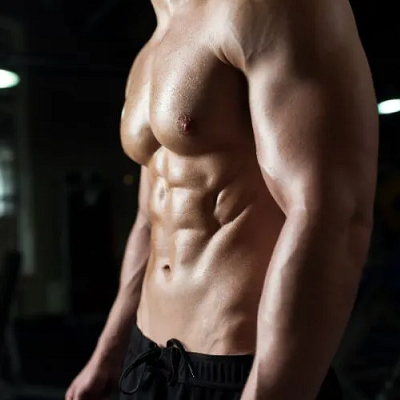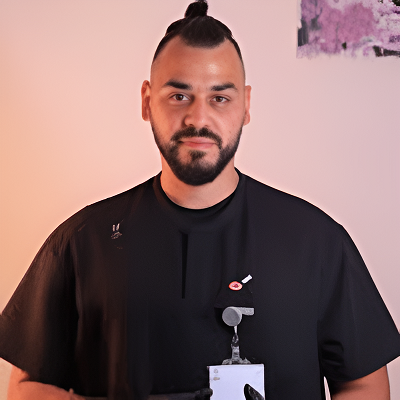Quick Facts!
- Treatment: Hormone therapy
- Purpose: Restore testosterone balance
- Cost: 1,200 AED
- Eligibility: Men with low testosterone
- Time: Depends on treatment type
- Downtime: Minimal to none
- Diagnosis: Blood tests, Hormone evaluation
- Results: Noticeable improvements
Low testosterone can affect your energy and sexual drive. And it can also impact your mood and overall quality of life. Low testosterone treatments in Abu Dhabi offer safe and effective solutions to improve energy and your overall health. The advanced treatment restores your hormonal level to balance. Keep reading more and stay connected!
Table of Content
What is Low Testosterone?
Low testosterone is a condition in which the body does not produce enough of the hormone testosterone. It is often referred to as “Low T” or “male hypogonadism”. This male hormone is also essential for maintaining energy and a healthy sex drive. Its low level can affect both physical and emotional health.
Common Symptoms of Low Testosterone:
Here are common symptoms of low testosterone:
- Feeling tired or struggling to stay active.
- Reduced muscle strength despite regular exercise.
- Noticeable drop in libido or sex drive.
- Loss of focus and concentration.
- Gradual hair loss.
- Low motivation or feeling of sadness.
- Poor sleep quality.
- Reduce sperm production and erectile dysfunction.
Cost of Low Testosterone Treatments in Abu Dhabi:
The low testosterone treatments cost starts from 1,200 AED. The price may vary depending on the type of treatment you are receiving and the skills of the medical specialist. The location of the clinic can also impact the final pricing.
Here is the pricing table for Low testosterone treatment:
| Treatment | Price Range in AED |
| Testosterone Injections | 1,200 to 1,500 |
| 3 session TRT | 2,200 to 2,500 |
| Testosterone Blood Test | 400 to 600 |
Causes and Risk Factors of Low Testosterone:
The common causes and risk factors of low testosterone are written below in tabular form:
| Causes | Risk Factors |
| Natural aging process (after 30) | Obesity |
| Testicular injury | Family history |
| Chronic illness | Poor lifestyle habits |
| Certain medications | High stress |
| Genetic disorders | Diabetes or high blood pressure |
How Common is Low Testosterone?
Low testosterone is not a rare condition, especially in older men. The younger men are less affected, and only 2% are affected whose age is below 40 years. Nearly 50% of men experience low levels of testosterone by the time they reach mid-seventies. It means the likelihood of low testosterone levels increases with an increase in age.
Ideal Candidates for Low Testosterone Treatments:
Here are the best candidates for low testosterone treatment:
- An individual struggling to stay active or constantly feeling tired.
- A person who notices a decline in sexual health.
- People who experience sudden mood changes.
- Low muscle weight despite regular exercise.
- People who have obesity or obesity-related health conditions.
Diagnosis and Test for Low Testosterone:
To learn about the low-T, the expert in the therapy will mostly perform a series of evaluations, such as:
Medical History & Physical Evaluation:
The healthcare expert will ask about the symptoms and medical history and carry out a physical evaluation to look for any indication of low-T.
Blood Test:
This is a typical method to examine low testosterone:
- Total testosterone level: This is mostly done early in the morning when the levels of testosterone are at their peak.
- LH- Luteinizing hormone: This is done to help decide if the reason for low testosterone is a problem with the pituitary gland or not.
- Prolactin: Raised levels of prolactin may be an indication of a pituitary problem or tumours.
Effective Treatment Options for Low Testosterone:
Below are the effective treatment options for low testosterone:
Testosterone Replacement Therapy:
Testosterone replacement therapy is the most common treatment for men with clinically low testosterone. The therapy helps to restore the hormonal balance to improve mood and libido. It also improves energy and physical strength. The TRT comes in the following form:
- Injections: Injections are administered directly into the muscles to deliver a steady dose of testosterone.
- Gels and Creams: The gels and creams are applied to the skin daily. This allows the skin to absorb the testosterone into the bloodstream.
- Skin Patches: Skin Patches release a consistent level of testosterone throughout the day.
- Pellets: Small pellets are placed under the skin that release the hormone slowly over the months.
Medications:
Medications are advised for those who want to avoid the direct dose of testosterone replacement. Here are certain medicines that can be used to stimulate the body’s own production. The common medications may include:
- Clomiphene Citrate
- Human Chorionic Gonadotropin
- Aromatase Inhibitors
Lifestyle Changes:
Lifestyle modification can boost hormone production and ease the symptoms. The key lifestyle changes are:
- Exercise: Strength training and intense workouts can raise testosterone levels naturally.
- Balanced Diet: Eating nutrient-rich food supports hormonal health.
- Quality Sleep: Maintaining a healthy sleep is essential to keep the testosterone level high.
- Weight Management: Reducing excess body weight is also very effective in treating low testosterone.
Treating Related Health Issues:
Sometimes low testosterone is a sign of other health problems. Pituitary gland disorders or testicular issues may be the cause of these problems. Natural hormone level improvement can be achieved by addressing the underlying cause.
Benefits of Low Testosterone Treatment:
There are numerous benefits of the therapy, some of which are as follows:
- Energy and motivation are increased.
- Improvement in sexual function.
- Muscle mass and strength are enhanced.
- Enhancement in bone density.
- Reduction in signs of sadness & anxiety.
- Assists in reducing fat in the body.
- Cognitive function is improved.
- Sleep quality is improved.
- The formation of red blood cells is increased.
Why Choose Enfield Royal Clinic?
At Enfield Royal Clinic, we combine medical expertise with advanced treatment options to deliver magical results. Here is why patients trust us:
Expert Led Hormone Therapy:
Our experts are skilled in treating low testosterone. Our scientifically supported treatments are intended to successfully restore your hormone balance.
Advanced Diagnostic Facility:
Accurate treatment begins with accurate testing. We use advanced testing machines to measure the hormonal levels.
Personalized Treatment Plans:
We understand that no two patients are the same. Our skilled team creates personalised treatment plans to address your unique requirements.
Confidential and Royal Care:
We always ensure that our treatment is provided in a private and comfortable environment. Your safety and privacy always come first.
Reclaim Your Strength By Booking Us!
We offer personalized treatment that is designed to bring back your hormone levels. Schedule your appointment today for an expert Low Testosterone Treatment in Abu Dhabi. Booking is simple: just click the provided online form below.
FAQ’s:
Can Low Testosterone Also Affect Women?
A small amount of testosterone is also produced by women. The low level may have an impact on the woman's mood swings and libido.
Can Testosterone Replacement Therapy (TRT) Improve Fertility?
TRT does not improve men's fertility. It can have issues with fertility as it may decrease sperm count. Alternative treatments are suggested for fertility.
Can Only One Test Confirm Low Testosterone Levels?
One may not be enough for a precise result. Tests are often repeated for accurate results.
Can I Naturally Improve Testosterone?
Targeted exercise and proper sleep can improve testosterone. Proper nutrition can also boost the levels.
How Often Do I Need Regular Follow-ups?
Regular checkups are required to monitor your hormone levels. The doctor will adjust the treatment according to your improvements.
Can Low Testosterone Affect the Health of Bones?
Low testosterone has a bad effect on bone health. It raises the risk of osteoporosis and reduces the mineral density of bones.












 Start
Start